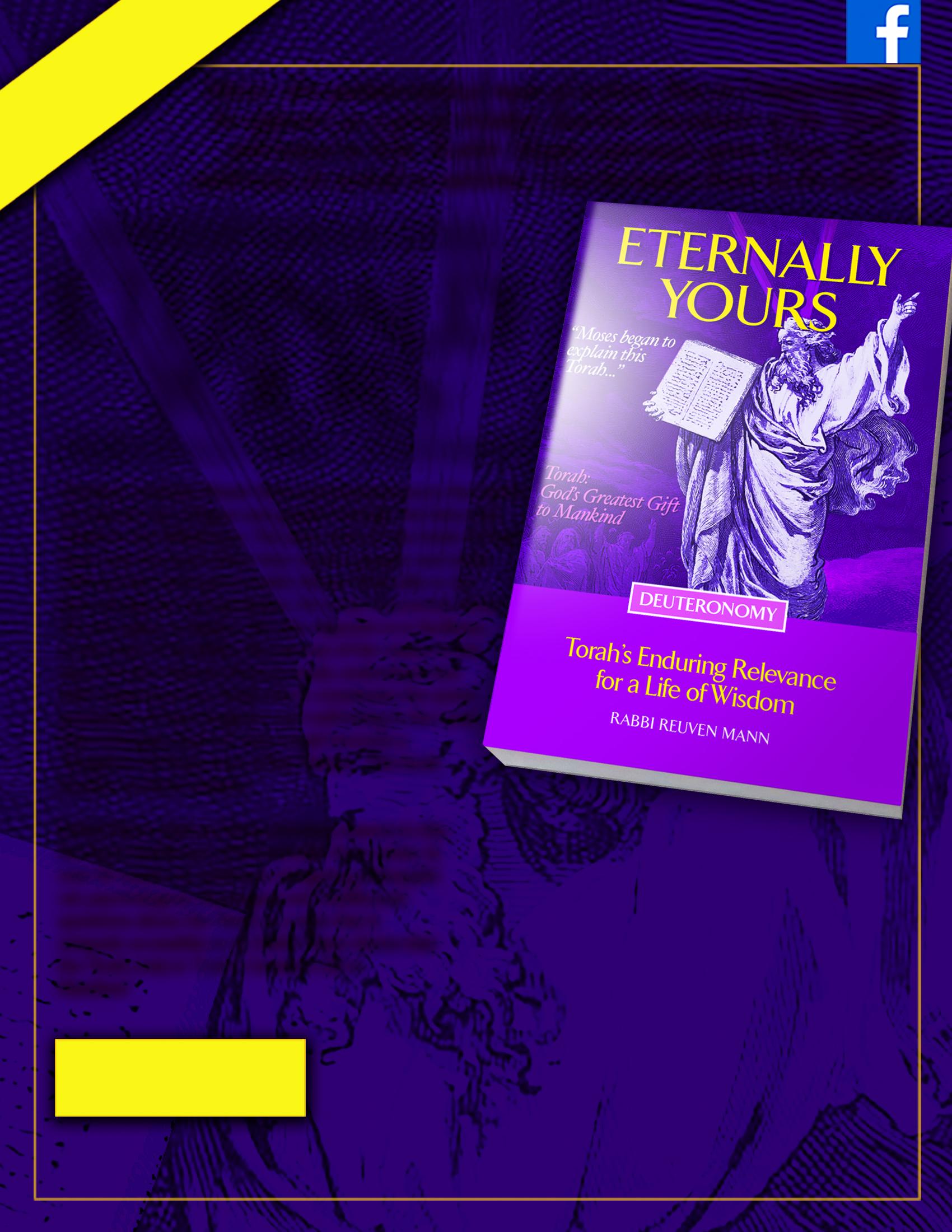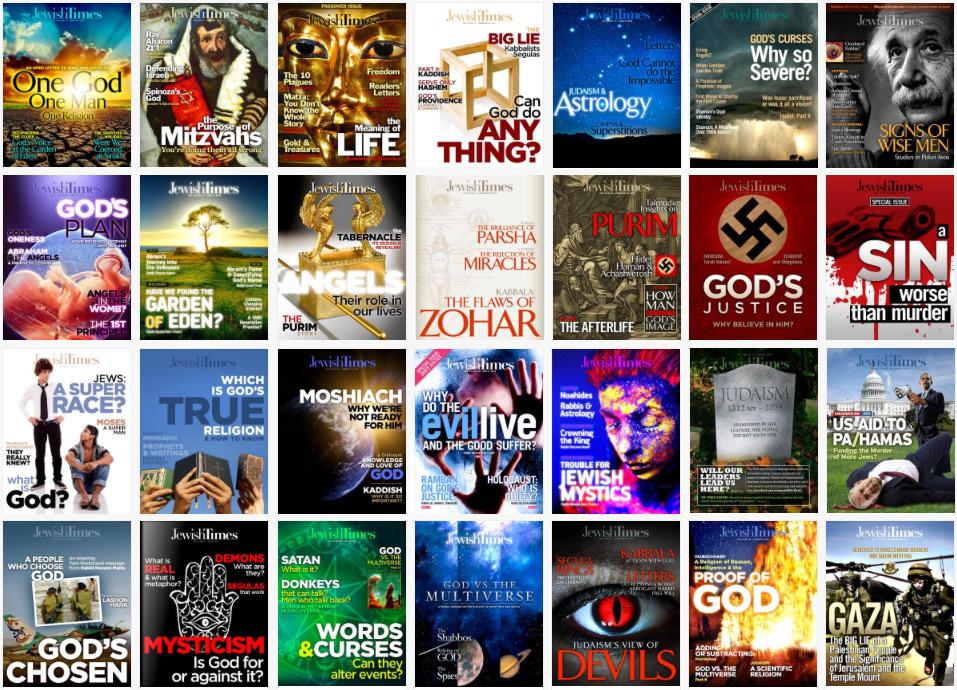IT’S THAT SEVERE
Speech that Earns Death
KING DAVID’S PSYCHOLOGICAL INSIGHTS INTO HUMAN FLAWS

SOLOMON’S WISDOM

THIS MOST WISE KING REPLIES TO YOU
RABBI REUVEN MANN PARSHA

SELF-IMPOSED








Just click any icon in







THE JOURNAL ON TORAH THOUGHT
| Please send letters and questions to: Comment@Mesora.org |
3 Holier Than Thou?
RABBI REUVEN MANN Jewish supremacy?
5 Shidduch Crisis
RABBI MOSHE BEN-CHAIM Ego and religious extremism drive this self-affliction
6 Discussions
RABBI MOSHE BEN-CHAIM
A few recent matters of interest shared with our readers
8 God’s Justice
KING SOLOMON
Psychological insights to correct our view of reality
10 Lashon Hara
KING DAVID
Psychological insights into ego and speech
11 Happiness in the Face of Adversity
RABBI ELIE FEDER PHD
An exploration into gratitude through a mother’s parting words
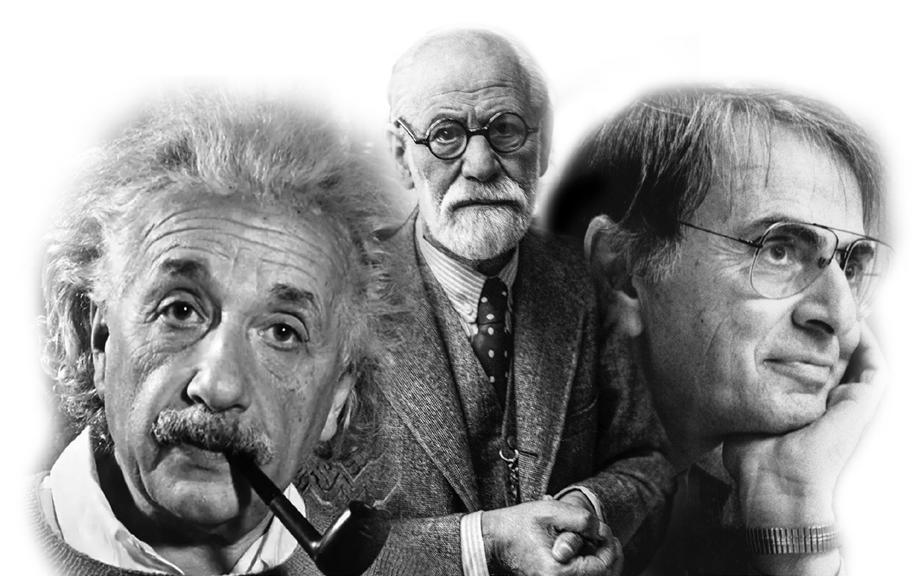

RABBI REUVEN MANN
Are We Holier Than Thou?
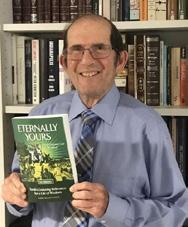
The Sacred Role of the Kohanim
This week’s Parsha, Emor, deals with the special laws that apply exclusively to the male descendants of Aharon, known as Kohanim (plural: Kohen). The Kohanim were assigned the sacred task of serving in the Holy Temple and performing its sacrificial rituals. Anyone who is not a Kohen and seeks to perform this Service is liable to “death at the Hands of Heaven.” In fact, even Kohanim who lack the proper qualifications face this danger if they endeavor to perform the Avoda (Service) in the
Holy House.
The Kohen Gadol (Chief Kohen) alone may perform the extensive Yom Kippur program which entails entering the Holy of Holies for the incense service—a privilege restricted to him on this sacred day. This role demands an individual of exceptional wisdom and good deeds, the most advanced among his brethren. Tragically, during the Second Temple period, corruption undermined this sacred office. The Hasmonean Kings sold the position of Kohen Gadol to the highest bidder, resulting in many unqualified individuals assuming this high office.

While the First Temple, lasting 410 years, had only twelve Chief Kohens, the Second Temple, spanning 420 years, saw over three hundred. A significant number of those who purchased the right to minister in Hashem’s Holy Abode on the Day of Atonement did not survive the year, a consequence of their recalcitrant disregard for the role’s spiritual demands.
The special laws that pertain to the Kohen stem from the fact that he must aspire to the lifestyle of Kedusha (Holiness). As we learn in Parshat Kedoshim, all Jews must adhere to a sanctified way of living. However, there is a clear distinction between what is expected of the ordinary Jew and what is demanded of the Kohen.
The Kohen Gadol represents the Jewish People as he comes before G-d to offer their sacrifices. On Yom Kippur, he confesses the sins of the entire nation, a process requiring an individual who embodies the most advanced level of Sheleimut HaNefesh (spiritual perfection) and righteous behavior. When the appropriately qualified Kohen Gadol carries out his responsibilities, in a correct and conscientious manner, Hashem grants Kaparah (Atonement) to Am Yisrael for all their transgressions.
Holiness: A Goal, Not a Given
Some have raised the question whether the Kohanim, and the Jews at large, have any innate holiness? There are theologians who maintain that in a real sense the Jews possess certain spiritual advantages that other nations lack.
However, if Jews possessed intrinsic spiritual superiority, how could we accept converts, who presumably lack that special Jewish holiness, since they were born as gentiles? Furthermore, our history attests that many righteous converts and their descendants have been among the Jew’s most outstanding Torah personalities. When Korach revolted against Moshe and accused him of seeking to amass personal power, he argued that, “the entire Congregation is holy and Hashem is in their midst; so why do you elevate yourself over the assembly of Hashem?” (BeMidbar 16:3)
According to Rabbi Samson Raphael Hirsch, Korach mistakenly believed that the Jews were holy by nature, and therefore, did not require the strict governance of Moshe.
Just let the people be themselves, he asserted, and they would make the correct decisions.
Rabbi Hirsch rejected the position of

Korach. He emphasized that the verse says, “Kedoshim Tehiyu,” (VaYikra 19:2) which means “You shall become holy.” This most clearly implies that holiness is the goal one must strive for, not something you automatically possess.
The Torah’s Impact on Jewish Exceptionalism
However, the matter is not so simple. Someone may legitimately point to the special role the Jews have played in the history of mankind.
They have made contributions in the fields of theology, science, literature, economics, and medicine, in remarkable disproportion to their numbers.
Jewish exceptionalism is notably evident in the disproportionate number of Nobel Prize winners of Jewish descent. Of the 965 individual recipients 216 (~22%) have been Jewish or have had at least one Jewish parent. The Jewish “share” of winners is 110 times their proportion to the world population!
In spite of the fact that they have been exiled for over two-thousand-years and persecuted in the most vicious ways by virtually all the nations among whom they dwelled, they have been more creative and productive than any other people. Indeed, even after enduring the horrors of the Holocaust—the most brutal catastrophe any nation has suffered—they established a vibrant democratic state which is a leader in many fields of technological, agricultural and medical expertise. Everyone who is honest and not a deranged Jew-hater must admit that the nation which regards itself as G-d’s Chosen People is special and unique. Indeed, Mark Twain in the conclusion of his essay “Concerning the Jews” was amazed at the durability and resilience of the Jews who manage to outlive and out accomplish all of their tormentors; most of whom have been consigned to the dustbins of history, never to be heard from again. Twain concludes his survey of the Jews with a poignant question, what, he asks is the secret of the immortality of the Jew? I would like to venture an answer to the Mark Twain query. The source of Jewish exceptionalism is the Torah way of life. When a person embraces the virtues and values of Judaism he attains a higher level of functioning. The most significant Torah activity is the study of Torah itself, which trains a person to think rationally in all areas of life.
Additionally, the Mitzvot of the Torah instill in a person discipline and control over their
instinctual forces while compelling them to act with justice and compassion toward their fellow man.
When an entire society internalizes the behavioral ideals and wisdom of the Torah it functions on an exalted intellectual level and attains the characteristic of holiness.
––––––––––––––––––––––––––––––––––
In my opinion the great historical achievements of the Jews are not due to any innate superiority, but rather, to the impact that the Torah has had upon them.
The Jewish people are holy insofar as they cherish Torah, diligently study it and live according to its ideals and values.
A Holy Nation in Challenging Times
In these difficult times when we suffer from the malignant hatred and invective of the primitive Jew-haters, let us draw comfort from the awareness that the Creator of the Universe chose us to be the recipients of His greatest gift to mankind, His holy Torah.
The world intuitively recognizes the Torah as G-d’s authentic revelation and harbors envy that He has bestowed it upon us, His Chosen People.
Our mission is to be a “Kingdom of Priests and a Holy Nation” (Shemot 19:6) which declares the praises of Hashem to the entire world. Ultimately the nations will come to the realization that “it was all falsehood that our ancestors inherited, futility that has no purpose” (Yirmiyahu 16:19). “… and all the nations will stream to it … For from Zion will the Torah come forth, and the word of Hashem from Jerusalem” (Yishayahu 2:2-3). They will yearn to learn Torah from its genuine interpreters, the wise Talmidei Chachamim (scholars) of Israel. May this happen speedily and in our time.
Shabbat Shalom. ■
Questions? Comments?
Please reach out to Rabbi Mann on WhatsApp 050-709-2372 or by email at: rebmann21@aol.com or to Mitch Rosner on WhatsApp 054-426-3419 or by email at: mitchrosner@gmail.com
SELF-IMPOSED
Shidduch Crisis
Why do people cut-off others in traffic, need to get the last word in, interrupt others at social affairs, build mansions, dress to kill, buy jewelry, expen sive watches, and drive the newest luxury cars? Ego.
Ego wrongly propels much of one’s values, daily activities, attitudes and personal relationships. But it’s not the Torah way, which over all else, prizes humility, like God praised the humility of Moses our teacher (Num. 12:3). The Jew who follows God does not reply, even to those who curse him (Shmoneh Essray). His value is God’s wisdom, the self is of no concern other than health and modest needs: “He would even sleep on the ground, drink water and eat bread” as his sustenance, if it would come to that, and despite poverty, like Hillel, he would still meditate on God’s Torah (Avos chap. 6). When Torah is studied for a love of its wisdom and for God, social needs and ego fall by the wayside. Unless worked on, one’s ego will continually drive him in many areas, including religious matters. Ego is also responsible for the current “Shidduch Crisis.” In order to display one’s religious level, religious Jews today innovate the most nonsensi cal demands for a match: “Does she read english novels? Which shul does her father belong to? Which yeshiva did he study in? Does he wear a hat? Does she go to movies? Does he wear jeans?” Really?
How about these instead: “Does he give full tzedaka? Does she portray modesty? Does he visit the sick? Care for his parents? Is he honest in business? Does she refrain from lashon hara?” Yeah, that’s more like it.



Eliezer sought internal perfection, found in Rivkah. Her clothing was of no concern, nor was her family’s values, and rightfully so. Rivkah thought into how to best help another, even a stranger. She was so sensitive to others, she “ran” to serve Eliezer, so as not to make him feel low for needing help. Abraham too “ran” when serving the three angels, to return their dignity after they too were in need. What nonsense and self-inflicted harm it is to evaluate others based on manufactured over-religious attitudes, that mean nothing, and are sought only to display your own imagined high religiosity? That’s why people reject display “She is not religious enough, like me.” (Stress on the “me.”) Rejecting others is so clearly a means to bolster your own ego. So people stay single, paying the price for considerations Eliezer would
People don’t follow God, they
And so many marriages of couples end in divorce. Why? Because reality can never be ignored. Marriage succeeds when both partners share good middos, are patient, value truth, are generous, and can admit error…all matters
throw away the “religiosity humble, intelligent, generous
DISCUSSIONS

The Sea’s Angel
The Jews rebelled at the Reed Sea. Rabba bar Mari says, “What is the meaning of that which is written, ‘But they were rebellious at the sea, even at the Reed Sea. Nevertheless, He saved them for His Name’s sake’ (Psalms 106:7–8)? This teaches that the Jews were rebellious at that time, and they said, ‘Just as we are ascending from one side of the sea, so too perhaps the Egyptians are ascending from the other side, and we will not be saved’” (Talmud Archin 15a).
God deemed it appropriate to remove the Jews’ worries , the above talmudic portion continues:
After the drowning or the entire 600-man Egyptian army, the Holy One, Blessed be He, said to the ministering angel of the sea, “Spew out the drowned Egyptians onto dry land.” The ministering angel said before Him, “Master of the Universe, is there a servant whose master gives him a gift and then takes it from him? Since the dead Egyptians were given to me for my fish to eat, how can You retract Your gift?” God said to the ministering angel of the sea, “I will give you one and a half times their number [in exchange]. Although I am taking them back now, later I will give you one and a half times as many bodies.” In the case of the Egyptians it is stated, “Six hundred chosen chariots” (Exodus 14:7), whereas with regard to Sisera, who was defeated at the Kishon Brook, it is written, “Nine hundred chariots of iron” (Judges 4:13). The ministering angel of the sea thereby complied and spat out the Egyptian bodies onto the sea shore (Ibid.). The Jews saw the dead army and rejoiced.
God catered to the Jews’ insecurity and showed them the dead Egyptian army. This was necessary so the Jews would respect that God, in that He secured their complete salvation through the full destruction of their enemy. But how do we understand God’s discussion with the “ministering angel of the sea?” Seas can’t talk, so what is this metaphor? Also, what is the deal God made with the angel?
This metaphor means it’s not God’s preference to do miracles, i.e., that drowned bodies should violate nature and float and wash ashore. But as God’s plan is that mankind recognize Him for our own good, He overrides natural law for that greater good, to gain man’s respect. He changed the sea’s natural laws this one time and the sea spat out the 600 bodies. The sea disagreeing with God means God’s natural oceans should remain functioning naturally, as water in its natural state bears witness to a wise Creator, which is God’s will. But when a conflict arises between nature and man’s poor estimation of God, God suspends natural law in favor of the grander goal of man respecting God. God miraculously provided water, quail and manna in the desert 40 years for this very purpose. His 10 Plagues too sought to impress Egypt.
When God promised one and a half times the bodies during Sisera’s time, it means God will eventually set things right, where natural law will return, and obscure the momentary suspension of nature when Egypt’s army washed ashore. A greater amount of 900 bodies will eclipse the previous event of 600 bodies. The angel of the sea (i.e., natural law) favoring this deal, means nature—God’s original plan of nature—will be reinstated. ■
Idolatry is Suicide
If anyone of the house of Israel slaughters an ox, sheep or goat in the camp, or outside the camp, and does not bring it to the entrance of the Tent of Meeting to present it as an offering to God before God’s Tabernacle, it is considered as committing murder to that man: having shed blood, that person shall be cut off from among this people (Lev. 17:3,4).
Yonasan ben Uzziel comments: “It shall be considered murder to that man, to him it is as if he killed an innocent man.”
Quoting Rashi, Rabbi Israel Chait explained this means that one who avoids sacrificing to God, but sacrifices to demons, is “considered” as committing murder…his own murder; suidice Since he is yet alive, it is only “considered” suicide. “To that man” intends to clarify that the bloodshed is not referring to the animal, but he himself did he kill…through idolatry he lost his right to life, as if he killed himself. That is, he’s worthy of death due to his idolatry.
With the words “As if he killed an innocent man” Yonasan ben Uzziel means this man sees no wrong in his idolatry, his entire sense of reality is so distorted that he does not even see his error. He views himself as “innocent,” as King David says about idols and idolaters, “They [idols] have eyes but do not see…and their sculptors are [blind] like them” (Psalms 135:17).
Here, Torah highlights the severity of believing in powers other than God. This is not limited to ancient idol worship, but also to current day superstitions. We must examine ourselves: do we maintain anything but God determines our fate? Red strings? Mezuzahs? Notes in gravesites? Notes in walls? Tehillim recitals? Torah’s position is clear: our fate is determined by our deeds. If we sin, nothing protects us from punishment. And if we are just, God alone grants goodness. All else like amulets and those invented “Jewish” beliefs above are imaginary, worthless and ineffective. ■
Earth Exists for Man
R. Simlai said: “Even as the formation of man took place after cattle, beast and fowl when the world was created [Genesis], so too Torah laws [regarding women’s ritual impurity at birth] are stated after the laws regarding cattle, beast and fowl [i.e., after kosher laws mentioned previously] (Rashi, Lev. 12:2).
Just as man’s physical existence follows the creation of all else [Adam came last in Creation], so too man’s metaphysical existence—Torah laws—are listed after laws about animals.
Man came last in creation, for man’s existence requires all else to be ready before he enters the world stage: man’s physical existence depends on earth, water, sunlight, vegetation, trees and stones for homes, and animals for food, farming and clothes. Therefore, all these were created before man. Similarly, our metaphysical existence—perfection—relies on interaction with Earth, so man again must come last. One cannot simply agree “mentally” with Torah values, but he must demonstrate conviction in action to measure his convictions. Agreeing that charity is good is worthless if one never gives charity. God designed man with many emotions, for example, generosity. In order to perfect his attachment to wealth, there must be the tangible opportunity to express the proper relationship. One expression is charity, another is not working the fields every seven years, and there are many more. Once God's wisdom determined that generosity is a necessary component of our psyches, we now need the necessary environment where this emotion plays out, so we might perfect our values through action. Thus, all other creations which carry Torah commands must again precede man, as man cannot perfect himself in a vacuum. ■



At some point in life, almost everyone has considered the all-important question: Does God exist? While various avenues can provide us with direction for navigating this question, modern people often look to science as the gold standard for shedding light on life’s toughest and most important questions. Therefore, it’s only natural to wonder: Can science be used to determine if God exists? Below is our best attempt to answer this question - to use science to help us determine whether God exists.
Read our paper below: https://www.physicstogod.com/3-proofs-of-god-from-science


Do You Question God’s Justice?


Restrain [both] your mouth from excitement and your heart from quickness from bringing forth a matter before God. For God is in heaven and you are on Earth, therefore let your words be few. Because dreams come from many matters and the voice of a fool with much speech. (Koheles 5:1,2)
King Solomon warns of the psychological flaws and self-deception that occurs when man tries to justify his claims against God’s justice. What does excited, rushed speech reflect about the speaker? And what is the difference between speech and a hasty heart?
Excited, rushed speech refers to “compulsion”; acting without thought. One does so as he is desperate to state his claim against God. “Speaking before God” refers to critiquing God (Rashi). However, as one has doubts about the silent whims of his heart, such insecurity conflicts with his need for certainty. So he can’t keep his views under his tongue. How does he escape painful conflict? He quickly voices his opinion to feel his thoughts are true, for he foolishly feels the spoken word now gains reality, as others now know his opinion; his peers are his sense of “reality.” Insecurity drives the need to arrive at some determination, and speech fools one into thinking that society’s recognition of his words determines truth. King David said people use speech to say “great things” (Psalms 12:4).

Meaning the speaker feels his word are great and true. It’s amazing what fools a person into believing something…he thinks that societal recognition dictates realty. But soon enough, reality exposes emotional views as false.
But also in one’s heart, there exists impulsivity which too is generated from the conviction that our feelings are justified. “Follow your heart” we hear often. But Torah depicts this very severe mistake:
When hearing the words of Torah’s curses, one may imagine a immunity from these curses, thinking, “I shall have peace [safety], because I follow my own willful heart” (Deut. 29:18).
Such a person receives God’s complete set of curses, he is never forgiven and God erases his name (Ibid.). This severity is sensible and righteous,
as he denies God’s Torah, so there is no hope for his teshuvah, explaining why he is never forgiven: he condemns Torah and justifies idolatry. King Solomon says “All who go to her (idolatry) cannot return” (Prov. 2:19).
Returning to Koheles, King Solomon’s remedy is to be mindful that “God is in heaven.” Heaven refers to God’s world, the world of wisdom, of truth. That metaphysical world which includes laws of nature and justice, determines man’s earthy existence. God dictates our earthly reality. Therefore, man is foolish to complain against God, to suggest the world operates wrongly. One cannot tell an architect that his house is too large, since the architect alone determines his plans. Similarly, one cannot tell God He made errors in creation. King Solomon advises us to accept God’s authority even when we feel justified in a complaint. Rashi elaborates:
And even if the one above is weak (if one feels God is wrong/weak), and the strong one (man’s confident accusations) is below, the dread of the weak one (God) must remain upon the strong one (man). How much more so when the one above is strong (correct) and the one below is weak (incor rect)!
Rashi means that regardless of one’s flawed convictions that God erred, one cannot accuse God of errors: God made the world, and it operates on His terms alone. In this case when man suspects God, the fear of heaven should remain on man and he should speak little. And certainly, as in fact God made no errors, “How much more so” God is the strong (correct) one, so one should speak little, he must not accuse God of His creation and governance. King Solomon then provides support for his ridicule of too much speech:
Because dreams come from many matters and the voice of a fool [comes] with much speech
One can't start a sentence with “because,” unless it is explaining a previous statement. King Solomon is contrast ing the proper life “let your words be few” to the distorted life “much speech.” Here, King Solomon identifies abundant dream topics and abundant speech as distorted. Dreaming is a purely emotional state, and the abundance of dream content shows that emotions attach to a variety of matters; emotional pleasure requires variety. Therefore the dream state at night is a rush of much imagery and feelings. The fool while awake, is like everyone asleep: a preponderance of emotions guides all thoughts, speech and actions. The fool who is purely emotional speaks of numerous matters, jumping from this to that, as his emotions drive his speech and his life. He has no organization or ordered thoughts, just like dreams. King Solomon provides us with two examples of a second reason to limit our speech: multiple topics in dreams and much speech of the fool displays man giving vent to his emotional side, which we must guard against through curbing our speech. For the emotions are not “preceptors of reality” focussing outwards on God’s creation that reveals His wisdom. Rather, emotions are mere drives to satiate lusts.
The lesson is to humble ourselves before God, even when feeing justified, as God makes no mistakes. “For Torah is not an empty matter” (Deut. 32:47). Beraishis Rabba 1:14 says, “If you do view Torah as empty, it is you who is empty.”


S PEECH THAT EARNS DEATH Lashon Hara
Rabbi Moshe Ben-Chaim

Help, O God, for the pious are no more; the loyal have vanished from among men. Men speak lies to one another; their speech is smooth; they talk with duplicity. May the Lord cut off all smooth (deceitful) lips, every tongue that speaks greatness. They say, “By our tongues we shall grow great; our lips are with us, who can rule over us?! (Psalms 12:2-5)

King David said pious people are defined by their speech. How is speech essential to piety? The rabbis also teach that one must be like the Ark of the Covenant which was gold inside and gold outside. Meaning one’s heart (inside) and his speech (outside) must be identically as good as gold: one’s speech must not differ from his true feelings and thoughts. What imperfection is this?
“Men speak lies to one another; their speech is smooth; they talk with duplicity”
What motivates lying? What’s the corruption? What is the objective? What is a lie? Corrupt man conceals from others his devious schemes. He knows that if he reveals his true corrupt intentions, others will reject him. But as he values his reputation and his need to gain from others, he takes subvert advantage of others through deceit, shielding him from facing social consequences. This is achieved by exhibiting a false friendly attitude and lies. Such people wrongly value their lives more than others. They have no concept of human equality, which is God’s will in creating many people. God wants all to coexist with justice, kindness and charity. This verse describes corrupt actions.
“May the Lord cut off all smooth (deceitful) lips, every tongue that speaks greatness”
King David says there is no remedy for deceitful people. Therefore they should be cut off. There is no remedy, since they feel most important, so changing their ways to accommodate others is not tolerable in their egoistic fantasies. They speak greatness as an egoistic person cannot believe his egoism in his head alone; he needs a sense of reality to confirm his ego. That sense is attained only when he feels others recognize his greatness, and that’s attained only through speech. This verse explains why they must talk.
“By our tongues we shall grow great; our lips are with us, who can rule over us?!”
R. Yochanan in the name of R. Yosi ben Zimra says the speaker of Lashon Hara denies God. After deluding himself of his greatness, ultimately, the egoistic person confronts God, Who threatens his feelings of greatness. But again this is intolerable, so he must deny God. “Our lips are with us” expresses the deep feeling of full control one has over his speech, he feels invincible. “Who can rule over us” denies God. This verse describes the power of ego, the cause of its irreversibility.
Speech is the mark of piety as it displays whether one views others as equals. The pious person will not mislead others as he values truth. His life is in search of God’s will and in upholding God’s will. The self is not his focus, so he does not seek social status, but only equality. The pious person recognizes all others as equal creations of God, deserving the same good. God destroyed Noah’s generation as there was social corruption of robbery and rape. But God spared generation of the Tower of Babel, as they had peace between themselves. ■

“As I hope you realize, the point of this all is to simply say, I thank God every day that I am truly blessed with happiness (to be cliche, Yiddishe Nachas). Bumps in the road are just that and make me appreciate what I have more.” — My mother’s letter
HAPPINESS IN THE FACE OF ADVERSITY
RABBI ELIE FEDER PHD
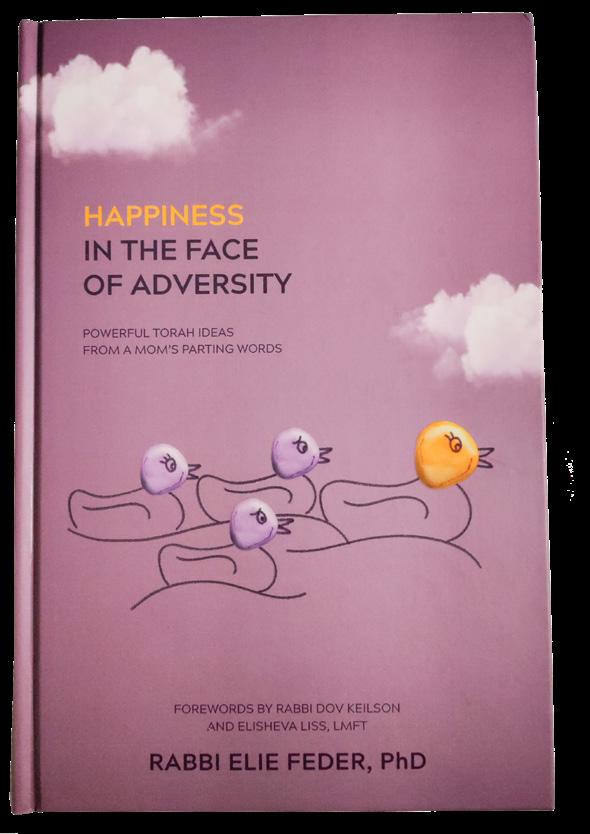

In this part of my mother’s letter, she reflects on her gratitude and appreciation for Hashem. Despite enduring years of health challenges, she remained thankful to Hashem for blessing her with a good life. Her exceptional hakaras hatov (appreciation) also extended to those who had helped her in various ways.
I have a few questions about the gratitude she expressed in her letter. First, she wrote, 'I thank God every day that I am truly blessed with happiness.' Every day? Really? When? During davening? I know some people express gratitude monthly or on their birthday—but every day? That seems frequent. Why so often?
Second, she said, “Bumps in the road are just that.” I don’t see how she considered her pain and suffering as mere “bumps in the road!” Her life often seemed more like an off-road track than a smooth road with a few minor bumps. How did she keep such perspective in minimizing her afflictions?
And finally, what did she mean when she said that her bumps made her appreciate what she had more? How did they do that? After all, they were bumps. In fact, they were big bumps! I would’ve thought that they’d make her feel upset or ungrateful, not appreciative.
While I could no longer ask my mother these questions, I hoped that their answers would come from more gaining insight into hakaras hatov.
Hakaras Hatov for the Egyptians
Given all the hardships, pain, and death that the Egyptians inflicted upon us, how should we feel about them now? Should we treat them like Amalek—forever remembering their evil and striving to blot out their memory?
The answer is: not really. The Torah tells us, “You shall not abhor an Egyptian, because you lived as a foreigner in his land.” (Devarim 23:8). Rashi explains that while we cannot abhor them entirely, we can do so a little bit. Though we allow their converts to marry into our nation, we only do so in their third generation after conversion (as opposed to other nations, which we allow immediately).
Rashi then justifies this balanced approach. On the one hand, the Egyptians threw our baby boys into the Nile; on the other hand, they hosted us in a time of need (in the famine during Yosef's reign). We treat them with the same type of balance. On the one hand, we recall their evil and bar their converts from marrying into our nation; on the other hand, we recognize their good and limit this restriction to two generations.
The Rambam (Guide, 3:42) elaborates on the moral lessons we can derive from this law:
If we find a person in trouble, whose assistance we once enjoyed, or of whom we have received some benefit, even if that person has subsequently done evil to us, we must bear in mind his previous [good] conduct. Thus, the Torah tells us: "You shall not abhor an Egyptian, because you lived as a foreigner in his land," although the Egyptians have subsequently oppressed us very much, as is well-known.
While the message is clear, neither Rashi, the Rambam, nor the pesukim provide deeper insight into why this is the case. Why should we recognize the Egyptians' hospitality after they turned on us so brutally? How can we possibly feel hakaras hatov for those who committed such terrible crimes against us? Shouldn't their evil cancel out their good? To understand why the Torah places such importance on recognizing the good, even when done by those who have harmed us, we need to delve deeper into the core concept of hakaras hatov itself.

BOOKS
The Focus of Hakaras Hatov
Consider the following straightforward question: Why is the focus of hakaras hatov on the hakarah – the recognition of the good? Shouldn’t it be on repayment of the good instead? By considering this question carefully, we can deduce that the essence of hakaras hatov lies not in the external act of repaying the one who did the good but in your internal recognition that you have received good. (Of course, repayment generally follows.)
Why should this be? Why is it so important to have this recognition? Because we naturally have a strong tendency to assert our independence, to feel like we’re the source of our own good. But this feeling is based on a false overestimation of our place in the universe, on a denial of our dependency on Hashem and on other people. Because we tend towards being kafui tov, denying the good, we must take every opportunity to counter this tendency by being makir tov, recognizing the good.
Where do we regularly recognize our dependence on Hashem? In Modim. According to Rashi (Sukkah 45b), whenever we say Modim to Hashem (e.g., in every Shemoneh Esrei), it doesn’t mean that we thank Him; rather, it means that we acknowledge what He has done for us, as opposed to denying it.
But hakaras hatov isn’t limited to recognizing the good from Hashem –the ultimate source of all good – but extends to recognizing the good from other people as well. Because we tend to deny that anyone besides ourselves contributes to our success, we must be on the lookout for diverse expressions of this insidious tendency and be ready to undermine it wherever it expresses itself.
No Cancellation
We can now return to the Rambam’s lesson from the command to have hakaras hatov to the Egyptians. Why didn’t the Egyptians throwing our babies into the Nile undermine our need to have gratitude for their previous hospitality?
This question is based upon viewing hakaras hatov as a form of repayment for the good that was done for us. From this perspective, we would no longer owe the Egyptians anything; their subsequent bad would’ve canceled all the previous good. But since hakaras hatov isn’t primarily for the one who did the good but for us, we must always remember our humble beginnings and recall the hospitality the Egyptians provided us when we truly needed it.
This perspective reminds us that gratitude is not conditional upon others’ perfection but is rooted in our own recognition of the good that we have received—a mindset that can profoundly impact our relationships and outlook on life.
My Mother’s Gratitude
With this new insight into hakaras hatov, we can answer the questions we asked about my mother’s gratitude. We asked about her statement, “I thank God every day that I am truly blessed with happiness.” We wondered why she thanked God so frequently. Through the lessons above, we’ve realized that hakaras hatov is based on our natural tendency to feel self-sufficient and deny the good we receive. To counter this natural inclination, my mother thanked Hashem every day for her blessings and her happiness. She realized that thanking Him less frequently would have made her susceptible to the natural, but harmful, tendency to deny Hashem’s good.
We also asked how bumps in the road gave my mother a better appreciation of what she had. Now we can answer that just as the Torah teaches us to balance recognition of good with acknowledgment of harm, my mother’s gratitude showed a remarkable ability to focus on blessings despite challenges. She realized that when things go well in our lives, we tend to take them for granted. We grow confident in our abilities and slip into a mode where we deny the good we’ve received from Hashem and others. She recognized how encountering bumps allowed her to pause and reflect. They enabled her to realize all the good that she had in her life. As difficult as the bumps may have been, she had the unique ability to keep perspective and make the best of every situation. And, of course, to appreciate it.
Finally, we asked how she could consider her pain and suffering as mere bumps when they seemed to be much more than that. The answer is all about perspective. My mother had a strong sense of priorities. She felt that as hard as it can be to deal with physical pain and illness, these things can be endured and don’t ultimately matter. My mother realized that having a life and a family centered on Torah values is much more important than good physical health. From this vantage point, we can see what she meant when she said, “Bumps in the road are just that.”
Practical Steps
Here are some thoughts that can help you incorporate the lessons gleaned from my mother’s letter and the Torah’s eternal messages into your own life.
A major impediment to happiness: Denial or lack of appreciation of the good that you receive from Hashem or from people.
Why this causes unhappiness: It prevents you from recognizing the good parts of your life and the assistance you receive from others, often causing you to remain focused on your adversity.
How this can be avoided: By always recognizing the good that you receive from Hashem or from people.
Practical steps toward recognizing the good you have received from Hashem and others:
• Recognize your deep-seated, natural tendency to deny the good you receive from others and to take credit for your own success instead.
• Acknowledge that this tendency is based upon a normal, but destructive, overestimation of your own abilities. Realize that these feelings lead to unhappiness because you’ll invariably notice that the world doesn’t conform to your egotistic fantasies.
• As you come to acknowledge your relatively small part in your own good fortune, devote time to reflect on or jot down the various blessings in your life that you either had no hand in or only played a partial role in bringing about. These may encompass aspects such as your life, health, talents, family, and career. Consistently revisiting these blessings can nurture a profound sense of gratitude toward Hashem or the individuals who have contributed to bringing these blessings into your life.
• Remember actual events in your life that have highlighted your own limitations, inadequacies, or mortality. These memories can help you counter any feelings of independence and self-sufficiency that may arise.
• Take regular opportunities to express your gratitude to Hashem and to people who have assisted you in obtaining the good in your life.
Why this helps you be happy: It allows you to appreciate and focus on the positive features of your life and all the good that others do for you. Furthermore, it can help put your adversity in perspective and prevent it from causing you unhappiness.
My mother’s life demonstrated that true happiness comes from a mindset deeply rooted in Torah values and principles. For a deeper analysis of Torah sources on happiness, or to explore more lessons from my mother about living a joyous Torah life, you can find Happiness in the Face of Adversity on Amazon at https://amzn.to/4i8PkLg and at Mosaica Press, or at your local seforim store.
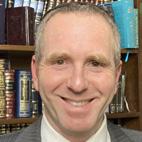
Bio: Rabbi Elie Feder PhD, a Rebbe at Yeshiva Bnei Torah and a math professor at Kingsborough Community College, is the author of Gematria Refigured (2022) and Happiness in the Face of Adversity (2024). He is also a cohost of the podcast “Physics to God” and the host of the podcast “Simply Deep.”




CLUES IN THE TEXT REVEAL MYSTERIES
All books depict history, facts, theories, fiction or poetry. No book is coded with hidden messages beyond the words or patterns revealing marvels. But the Bible (Torah) was written by God, and is “coded.” The order of verses, use of certain phrases, apparent contradictions and other Biblical patterns are pur poseful clues to God’s wisdom.
This book unveils those patterns and shares the hidden messages.






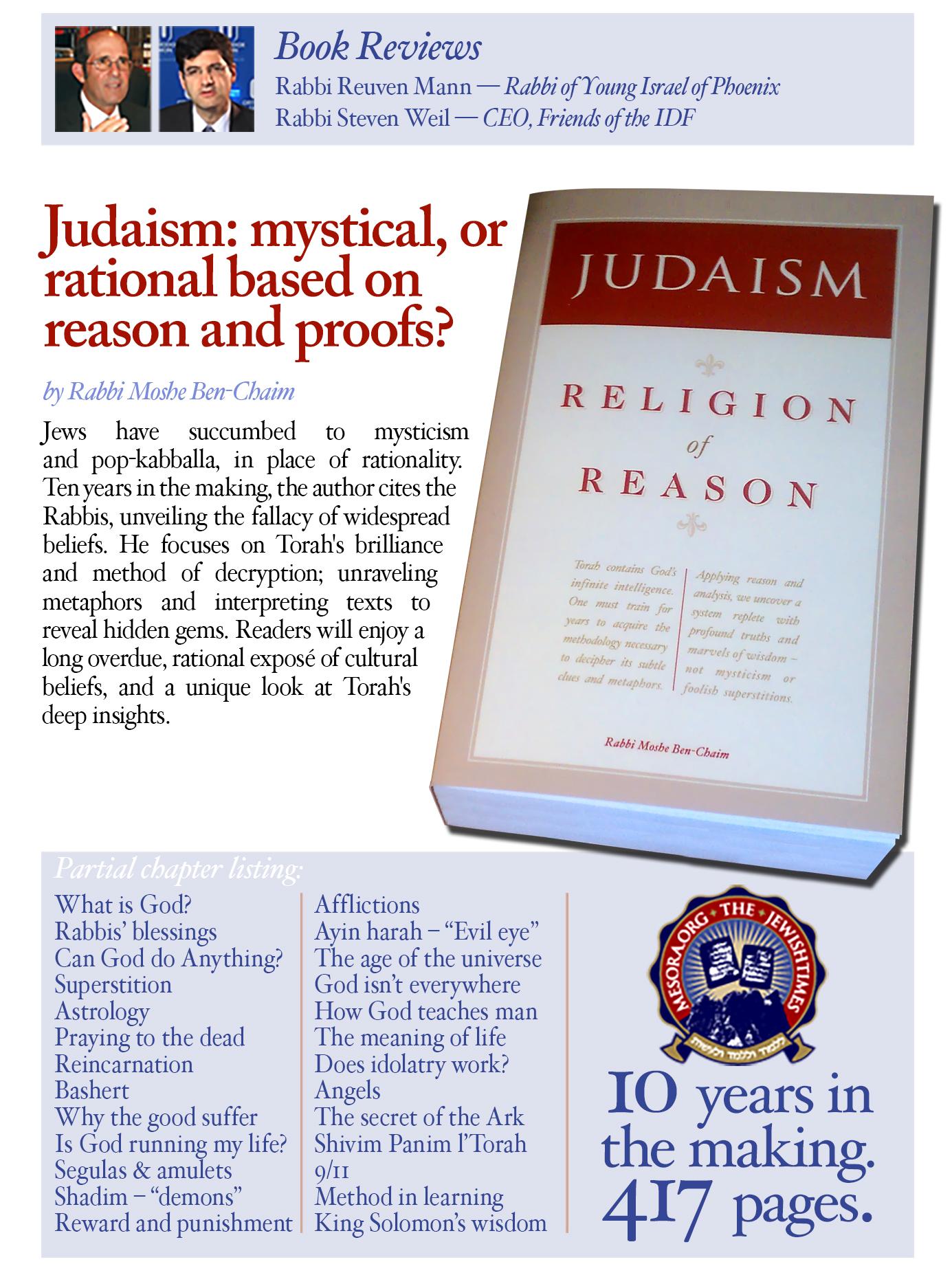
Is Judaism mystical, or is it rational, based on reason and proofs?



